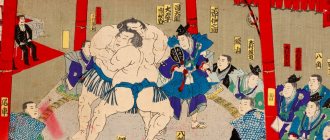- December 21, 2018
- Directions
- Irina Bukach
Incredible, but true - Russian is the most popular foreign language in the Land of the Rising Sun. Today about two thousand students study it. The very history of linguistic and intercultural relations between Japan and Russia began almost 300 years ago. And during this time, the Japanese have already managed to form their own opinion about the Russians.
History of relationship development
The first Russian-Japanese dictionary appeared in the 18th century. It was compiled by the sailor Gondza, who after a shipwreck found refuge in a foreign country. His work was republished in 1985 in Tokyo.
Russia began to cooperate with Japan in 1855, after the Russian-Japanese border treaty was signed. Then the first Russian consulate appeared in the Land of the Rising Sun, under which the Orthodox Church later appeared (1861).
Over time, a theological seminary was opened under her, where those interested were told about Orthodox Christianity and the culture of another country.
Significant interest in the Russian Empire arose during the Russo-Japanese War. At the same time, the language began to be taught at universities in Japan.
After the October Revolution, the Japanese began to develop bilateral relations with Russia, which also affected the economic aspect. In 1956, diplomatic relations between the states were restored. Russian artists and theater companies began to come to the Land of the Rising Sun, and Soviet films were shown. When the media reported that Gagarin flew into space, the technical intelligentsia paid attention to the USSR. A large number of Japanese came to study at the Moscow Peoples' Friendship University, and upon returning to their homeland, they became prominent teachers of the Russian language.
After the collapse of the USSR, relations between states became less close, and people began to talk about the country in a negative context. Over time, of course, public opinion has improved somewhat, but a positive image is still missing. So, what do the Japanese think of Russians?
There is nothing to divide: Japanese in Russia, Russians in Japan
150 years ago, the Japanese city of Edo opened a port for trade with foreigners. For many states of the Old World, this became a signal to establish economic and diplomatic ties with Japan. Meanwhile, more than 250 years before the opening of the port of Edo, its native first visited Russia. His visit was unsuccessful. Relations between the countries continued to develop in contradictory ways. TASS talks about how they originated and developed.
City on the Sumida River
Over seven centuries, the city of Edo went from a small fishing village to the capital of Japan and in 1868 became known as Tokyo. The population of this city at the beginning of the 18th century exceeded a million people (for comparison: the population of London and Paris at that time was 500 thousand, Moscow - 200 thousand).
The opening of the metropolis on the Sumida River to foreign trade occurred during extremely turbulent, revolutionary times for Japan. The military-feudal system headed by the shogun (ruler), which had existed for more than two centuries, was collapsing. The regime of self-isolation, called sakoku (from Japanese - “chained country”), also fell with it.
Emperor Mutsuhito came to power, and over the course of several years of his reign, he transformed a backward agricultural country into a Westernized and powerful empire.
The emperor's army was actively armed and trained according to Western standards, the Cabinet of Ministers was formed, and the class divisions of the feudal era were abolished. Christians (especially Catholics) were no longer subject to severe persecution, and prefectures replaced autonomous principalities ruled by daimyo (viceroys).
However, it was the Sakoku regime that played a key role in the appearance of the first Japanese on the territory of the Russian Empire.
Nikolai and Gabriel
According to the chronicle of the life of the Catholic martyrs of Japan, the first native of Edo to visit Russia was a Catholic named Nicholas. His family moved from Japan to the Philippines, where young Nicholas took monastic vows and then went on a trip to Rome with the Catholic missionary and monk Nicholas Melo.
In 1600, Melo decided that he would make his way to the eternal city through the Russian kingdom together with the Japanese Nicholas. However, in Moscow, travelers received a very cold reception: the Japanese Nicholas was executed in 1611, and Melo was burned at the stake as a supporter of False Dmitry and Marina Mnishek in 1614.
Moreover, the Japanese were considered Indian. According to Peter Podalko, a professor at Aoyama Gakuin University in Tokyo, this may be explained by the fact that Nikolai, who did not know Russian, tried to tell him that he was from Edo. And his words were apparently heard as “Indo.”
The second Japanese who visited Russia was much luckier. In 1697, while on board a small ship, a merchant named Dembey was shipwrecked near Kamchatka. However, he was saved from inevitable death at the hands of warlike aborigines by the pioneer Cossack Vladimir Atlasov.
In 1702, Dembey was granted an audience with Peter I, after which, by decision of the sovereign, he became the first teacher of the Japanese language in Russia and was sent to St. Petersburg. There Dembey converted to Orthodoxy and received a new name - Gabriel. And the school he founded taught the king’s subjects an exotic language for many more decades.
In the service of the Russian Empire
Subjects of the Russian sovereign came to Japan much later. Unlike the first Japanese, who ended up in Russia against their own will, the Russians came to Japan for a specific purpose.
So, in June 1739, ships flying Russian flags sailed to the shores of Japan. On one of them was Captain Martyn Shpanberg, a Dane by origin, on the second - the Englishman William Walton. Both were subjects of the Russian Empire. The sailors who landed from these ships became the first Russians on Japanese soil.
Shpanberg and Walton participated in the second Kamchatka expedition and their goal was to “find a way to Japan” and overcome “chronic Asian unsociability.” The subjects of Empress Anna Ioannovna managed to fulfill both instructions. In Japan, a memorial stone was erected at the Spanberg landing site in 2005.
In 1804, the first Russian ambassador Nikolai Rezanov landed in Japan. For six months he waited for an invitation from Edo, but never received it. The reason for this was the regime of self-isolation, which was still 60 long years away from falling.
The closed nature of the country almost led to a war between the Russian Empire and Japan at the beginning of the 19th century. In 1811, researcher Vasily Golovnin was captured by the Japanese on the island of Kunashir and transported to the island of Hokkaido, where he was imprisoned for two years. Golovnin was saved only thanks to the friendly relations between Admiral Peter Ricord and the Japanese merchant Takadaya Kahei.
From the opening of borders to the present day
The fall of the shogunate not only led to improved relations between the two countries, but also caused a surge in immigration from Japan to Russia, and more precisely, to the Far East. There were two reasons for this: the opening of borders and the rapid industrialization of Japan, which led to increased unemployment and a decrease in the standard of living on the island state.
Despite the fact that, according to official data, no more than a thousand ethnic Japanese now live in Russia, their diaspora has a rich history that is inextricably linked with official relations between the two countries.
Japanese immigration peaked from the 1880s to the 1900s and was reduced to zero with the outbreak of the Russo-Japanese War. Cities such as Vladivostok, Khabarovsk and Blagoveshchensk became home to many thousands of Japanese and remained so until the mass exodus of Japanese from Russia a few months before the outbreak of the 1904–1905 war.
This diaspora had one characteristic feature - gender.
“Labor emigration abroad presented an unexpected obstacle to men. A society of fishermen and rice farmers could only exist in closely related cultural societies. In neighboring China and Korea, Japanese men had a hard time finding similar work. But women could easily emigrate,” said Petr Podalko.
Japanese girls worked as laundresses, nannies, maids, and nurses in the cities of the Russian Far East. “It was believed that the Japanese were polite, neat, efficient, and unpretentious. In principle, that’s how it was,” Podalko added.
At that time, the population in this region was predominantly male. This gender imbalance pushed the local population and the Japanese diaspora to create mixed families. The male part of the diaspora was able to occupy several professional niches in large cities: the photographic industry, the production of printing products, bath and laundry business and minor household repairs. This business flourished until 1904.
After the war, many Japanese returned to Russia, and in 1916, the first and only agreement of its kind in history between St. Petersburg and Tokyo was even signed. But since then, the diaspora has not been able to restore its position in the Russian Far East, and the establishment of Soviet power in the country did not attract new immigrants.
Currently, a significant part of the Japanese living in Russia are diplomats and managers in representative offices of Japanese companies. An almost similar situation has developed with the Russian diaspora in Japan, which does not exceed 10 thousand people. However, its numbers have been growing since the collapse of the USSR.
The gender composition of the Russian diaspora in Japan resembles the composition of the Japanese diaspora at the end of the 19th century. “Among Russians in Japan, women aged 20 to 40 predominate. In this age category, the gap between women and men is enormous. Many women married Japanese in the 90s, during this economically difficult period,” Podalko explained.
Interest in traditional Japanese culture in Russia and in Russian culture (especially literature, ballet and theater) in Japan is consistently high. The situation is complicated by geopolitical issues.
“The Japanese and Russians historically had nothing to share. Russia is a continental country, Japan is a maritime country. The Japanese eat rice, we eat bread and potatoes. We do not have 100% competing activities; we can complement each other well,” says Petr Podalko.
Alexander Mosesov
They are lazy
Residents of the Land of the Rising Sun believe that Russians do not like to work. Not only do their working days last from 9:00 to 17:00, but they also have four weeks of vacation. And in addition, there are sick days off, which are also paid. Women can go on maternity leave, which lasts several years. The Japanese note that many take advantage of this, giving birth to one child after another. In addition, the state also pays benefits for this. Quite large, according to the Japanese, since everything is cheap in Russia.
A little about transport
Representatives of the people under study who visited the Russian Federation note that the country has very cheap public transport. But they managed to note that in order to maintain this cheapness, people have to use buses that were produced back in the Soviet period.
The guests are also sure that Russians buy cars on secondary markets. More precisely, they have them, but not in showrooms, but in landfills, because it’s cheaper. Then they are repaired and the engines are somehow adapted for low-octane gasoline. Russians give write-off cars a second life and can drive them for decades. No matter how old a car is, it will never be taken to the scrapyard, but will be constantly repaired.
Speaking of Russians, the Japanese consider them impolite, because when entering public transport they do not greet passengers or talk to each other, but if an old woman or a woman with a child enters the transport, they immediately make room for them. This is strange for residents of the Land of the Rising Sun, since they have places in their transport that are specially designated for such categories of the population and those for whom they are not intended do not occupy them. And if they are occupied, then the one who did not have time to take an empty seat remains standing.
A little about the kitchen
Russians and Japanese are different in everything. And only the cuisine of the former is somewhat similar to the cuisine of the Okinawans. On this island, just like in the Russian Federation, they love lard.
But meat jelly (aka jellied meat) surprises not only residents of the East, but also other foreigners.
Thinking about the Russians, the Japanese are sure that they eat potatoes only because they don’t grow rice. In addition, they love to eat sweets; residents of this country even add sugar to their tea. What is also surprising for the guests is that sweets are given not only to girls, but also to boys. And even an adult man can eat a cake without much remorse, and such behavior is not considered effeminate.
Russians don’t peel grapes and apples, but they do peel bananas (at least that’s good). To prepare borscht, a traditional dish, no dyes are used; its bright color is given by beets, which grow in the southern regions of the country.
Fact three: all Russian women are beauties
Russian girls are loved all over the world, and the Japanese are no exception: they are sure that all Russian women, without exception, are tall, slender, long-legged beauties with big eyes, who also always look good, wear stylish, bright, and sometimes very revealing clothes. clothes. The standard of beauty is Russian models and athletes: the names of Alina Zagitova and Anna Sharapova are on everyone’s lips in Japan.
And Japanese husbands value Russian wives not only for their appearance, but also for their character - they are open and cheerful, gentle and caring, independent and know how to quickly make decisions in unusual situations.
May 25, 2021
Fairy tales
Some Russians have taken root well in the Land of the Rising Sun. For example, Japanese children like the fairy tale about the Karamazov brothers. It's about how a father of three brothers is murdered and they're trying to find the culprit. At first, each of the brothers is suspected, the eldest is even sent to prison. But in the end it turns out that the killer was the fourth illegitimate son, who came to be hired as a servant. This fairy tale teaches children to remain faithful, as this can lead to tragedy in the future.
Another story that is popular in Japan is the tale of Cheburashka.
On some grocery machines, you can even find painted characters from this fairy tale. And children also like “Masha and the Bear”. If we talk about fairy tales and stories, then the inhabitants of the East have a fairly good opinion on this issue.
Benches and toilets
But what the Russians amaze the Japanese with is the lack of slippers in the toilets. Moreover, they do not have safety sinks in the public restroom. And Japanese men need to be warned in advance not to kneel in front of the toilet. Firstly, the Russians have not heard anything about the popliteal support, and secondly, men here relieve themselves while standing, and a kneeling foreigner will at least surprise them.
Even Russians, when they sit on a bench, sit not on the seat itself, but on the back, while placing dirty shoes on the seat. Besides, they spit at their feet.
Passion
Marriages and long-term relationships in Japan are often built between work colleagues or friends, as locals do not have time for a personal life. Work is a priority. The concept of “marriage without dating” is common there. Such relationships are built mainly on convenience without unnecessary feelings and emotions. But men from Russia are more emotional and surround the girl with attention. And even after marriage, they praise their wives in front of strangers, arrange dates and do not forget about the intimate side of the relationship. In general, Russians are considered impulsive and emotional by Asians.
Letter, queue, road
Those who have visited the Russian Federation or are somehow familiar with it know for sure that the country’s script is not similar to Japanese, Chinese or Korean. It is somewhat reminiscent of the American one, but the Americans also do not understand what is written. What else do the Japanese say about Russians and Russia?
Residents of the Land of the Rising Sun also note that Russians like to stand in line.
Even in a place where there should not be crowds, they will definitely arrange it in order to communicate, complain about the government and make new acquaintances. In addition, they do not like Skype, preferring live communication.
Also, Russians don't like to build roads. There are few of them in Russia, but in Siberia there are regions where there are no roads at all and people have to drive tracked all-terrain vehicles. They also don’t like traffic lights, so they are only in cities, and outside the city you can cross the road anywhere.
And other oddities
It is very difficult for residents of the East to understand why, having such vast territories, these people build multi-storey buildings. Moscow has been resettled in the same way as Tokyo, but beyond its borders lies a snowy wasteland with small villages. But all the houses are heated and you can walk around in the apartment in winter without outerwear. Russians speak English well, but they don’t know Japanese.
Guests also believe that unrestrained people live in this country. After all, as soon as the music starts playing in a restaurant, many people start dancing, without being embarrassed by other visitors. Some establishments even have special places where those who wish can dance without disturbing those who just came to dine.
There are also more sushi bars in Russia than in Japan itself. In addition, anime and manga are held in high esteem here. For example, Naruto is more popular than Cheburashka.
But in general, all Japanese know the simplest things about Russia and Russians: it is very cold here, bears walk the streets, so people always drink vodka and mass produce matryoshka dolls and earflaps.
Russians love holidays
“The man from Russia is a good person. He's not only interested in money." This is what one Japanese woman writes on her blog. Russians, in the eyes of foreigners, love holidays and know how to organize them. They spare no expense on entertainment and love to meet people, invite guests, have fun, and joke. This is considered an attractive character trait.
Many Asian women say that it is not uncommon for a Russian to play the guitar or sing. And it’s a pity that this is not typical for local guys. But in Japan they love to sing - it is in karaoke bars that office workers who are often reserved in everyday life can let off steam.











